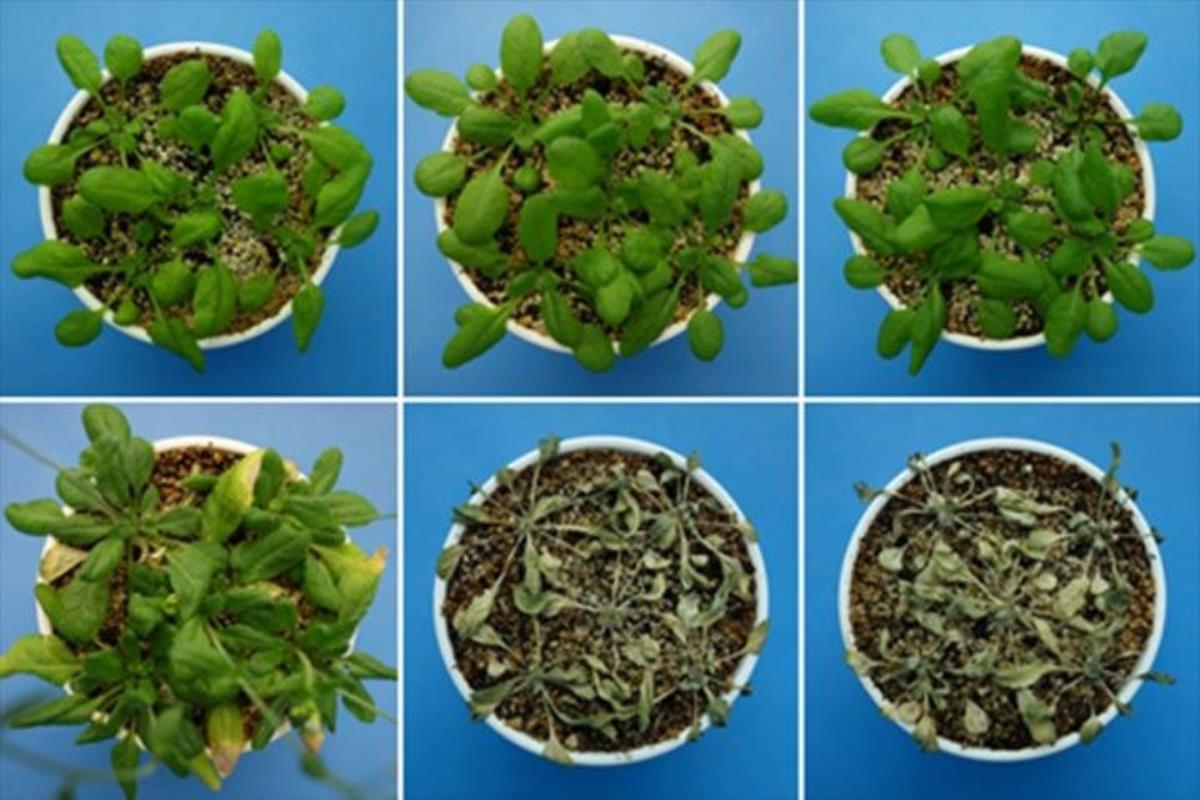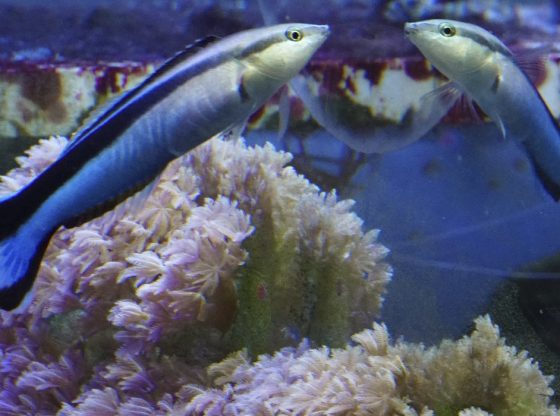
Credit: RIKEN
Japanese researchers have identified a hormone that could prevent your plants from drying out.
Having a nice and lush garden can be challenging. It’s about giving your plants proper nutrition, sufficient amount of light, but also the right amount of water.
Now, a team of Japanese scientists has identified a new hormone that reduces the amount of water required by plants. This hormone causes the plant to economize the water to a greater extent, retaining water when none is available in the soil.
The researchers at the RIKEN Center for Sustainable Resource Science (CSRS) began by looking at CLE peptides that are synthesized in the roots and at ABA — a hormone that is known to accumulate in leaves and help close pores in response to drought stress. They identified that the hormone CLE25 led to increased ABA in the leaves and pore closure.
The hormone CLE25 is produced in the roots of several plants, such as the thale cress (Arabidopsis thaliana). When the thale cress is at risk of dehydration, it releases the CLE25 hormone that moves upwards from its roots to the leaves.
Once it has reached the leaves, it stimulates another hormone. Together they close the “pores” of the leaves, known as cleavage openings. Thus, water evaporation from the plant decreases.
To investigate CLE25, the researchers used the CRISPR / Cas9 gene scissors to remove it from some plants. It then turned out that these plants dried out seven times faster.
Fuminori Takahashi, the main author of the study, believes that there is a potential use of CLE25 in agriculture.
“We are currently working on mixing different types of this hormone with fertilizers to enhance the ability of different crops to retain water,”
– Takahashi says.
Since many plants lack a CLE25 hormone, they are therefore at risk of drying out unnecessarily fast. The researchers believe that we may be able to genetically modify these plants so that they produce the plant hormone and thus becomes more resilient and better at retaining water.
Reference:
Fuminori Takahashi, Takehiro Suzuki, et al. A small peptide modulates stomatal control via abscisic acid in long-distance signalling doi:10.1038/s41586-018-0009-2






















